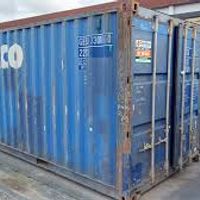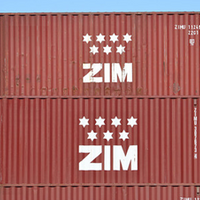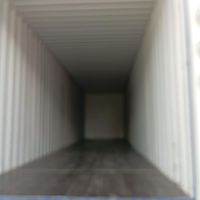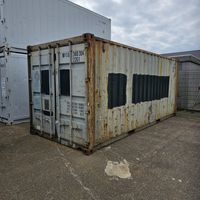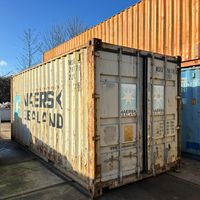Enhance your supply chain by understanding the key role of container depots. Discover their functions and see how partnering with a leading depot can streamline logistics, cut costs, and boost efficiency.
In the complex world of global trade, container depots play a crucial role for goods to seamlessly pass through the supply chain. These facilities facilitate the efficient handling, storage, and repositioning of shipping containers on land.
One of the pivotal functions of container depots is also to facilitate buying and selling shipping containers. A lot of people prefer trading containers directly from the depot, as it reduces delays that might happen when dealing with middlemen.
If you’re looking to buy or sell shipping containers without middlemen, then you can do it quickly and commission-free on our online container marketplace.
Simply enter your requirement, including container type, size, condition and location and get a list of wholesale shipping container offers. Browse, compare and negotiate offers to get the best deal for containers in minutes! Check out the container offers right now.
9,302 results found on the platform.
Container prices start from $400/unit.
Currently no match for your search
Change your search criteria or fill out the form below to get notified via email when there is a new match for you on xChange!
-
Pick-up

20DC (Cargo worthy)
3 units available
YOM:
Year of manufacture:
2004
2010
Savannah, GA
per container
Non-negotiable price$
1090
-
Pick-up

20DC (Cargo worthy)
6 units available
YOM:
Year of manufacture:
2004
2010
Savannah, GA
per container
Non-negotiable price$
1090
-
Pick-up

40HC (Brand new)
20 units available
YOM:
Year of manufacture:
2024
2024
Yekaterinburg, Sve
per container
Negotiable price$
1800
-
Pick-up

20DC (Wind and water tight)
6 units available
YOM:
Year of manufacture:
2004
2006
Chicago, IL
per container
Non-negotiable price$
800
-
Pick-up

20DC (Wind and water tight)
14 units available
YOM:
Year of manufacture:
2005
2006
Houston, TX
per container
Non-negotiable price$
850
Showing 5 of 9,302 results
Load more()
YOM:
Year of manufacture:
per container
$
What is a Container Depot?
A container depot is a specialized facility for storing, managing and servicing shipping containers. Depots are often called ‘secure facilities’ that provide a range of essential services like freight consolidation, shipping container repair and maintenance, container inspection and survey, container trading and much more for shipping and container companies.
These depots are also strategically located near the ports to optimize the movement of containers between ports, inland locations, and other key points in the supply chain.
After a container is unloaded from a ship, it is transported to the depot for storage until it’s picked up by truck or train for further inland movement. Likewise, once the cargo is delivered, the empty container returns to the depot for freight consolidation or storage until it’s ready for transportation to its next destination.
One of the biggest misconceptions about container depots is that they store fully-loaded containers. But in reality, it only serves as a holding facility for shipping containers until it’s time to reload or empty container repositioning.
Some depots are also equipped to handle Out Of Gauge (OOG) goods, which have extreme dimensions that surpass a standard container. Additionally, depots also help alleviate space crunch at the port and yards.

Functions of a Container Depot
Here’s an in-depth list of their functions:
Storage
Container depots offer secure storage solutions for empty and loaded containers. This is crucial for managing inventory and ensuring that containers are readily available when needed.
Freight Consolidation
One of the main functions of a container depot is freight consolidation. You can bring your cargo to the depot, and get it packed and shipped. And if there are loaded containers in the depot, they are unpacked and distributed.
Documentation
Depots also help with administrative and documentation processes such as:
- Communication with the logistics company
- Cargo loading and unloading
- Managing receipt
- Delivery of goods
- Custom clearance
Depots pose as a blessing for cargo owners. It makes your life easier and saves a lot of time.
Repair and cleaning
After customs clearance, the container is lifted using cranes for inspection to determine the extent of container damage. The damaged ones are taken to the maintenance facility for repair, thorough cleaning, and storage. And the operational ones are stacked separately for reuse.
Reefer storage facility
If you have a reefer that needs storing, depots also provide temporary storage facilities for reefers. Depots will have a separate area supplying electricity to reefer containers with temperature-sensitive goods.

Another very important function of a shipping container depot is to facilitate container trading for for both sellers and buyers. Let’s understand this in the section.
How container depots streamline container buying and selling
By acting as a hub for container storage and services, depots create a marketplace where container owners, buyers, and traders can connect, negotiate, and finalize deals, making the trading process more efficient and transparent.
For buying
- Offers a variety of container types and conditions to meet different needs.
- Provides a chance for inspection before the purchase.
- Proximity to the port and railroads makes it easier to transport containers.
- Readily available for pickup.
If any of these points jump out for you, then we’re happy to break out to you that you don’t have to visit the nearest container depot to buy containers.
With our online container marketplace , you can browse and purchase standard and specialized shipping containers at wholesale prices from over 2,500 locations worldwide. Buy directly from sellers with 100% price transparency, negotiable offers, and a 7-day money-back guarantee to inspect your containers!
Interested to know more? Learn why 1,700+ container companies trust us to buy containers are best deals.
For Selling
- Quick access to container buyers
- Buyers trust containers sold from depot because of certification.
- Offers secured storage option to maintain the container condition
- Convenient location to save on delivery charges.
While selling your containers from a depot has its advantages, it’s important to avoid racking up hefty storage fees while waiting for buyers. What if you didn’t have to search for buyers or worry about storage costs?
On our online container marketplace, you can sell your shipping containers for no-commission for gate-buy deals and otherwise. List your containers and receive offers from vetted buyers worldwide. If you sell containers en route, you won’t even need to pay storage fees!
Easily liquidate your containers and save on storage and repositioning costs. Want to see how countless container suppliers are making money with this strategy? Talk to our experts on how to sell your containers at best deals.
What is an Inland Container Depot?
An inland container depot (ICD) is a facility for storing containers located in the hinterland, far from the main ports. Before and after delivering shipping containers to the seaport, shipping companies store and move their boxes to the ICDs.
ICDS helps hinterland customers to receive port services closer to their premises. So, customers get to process their shipments near their godowns and factories, away from the far-off ports. In doing so, ICDs help in de-stressing and decongesting the main ports where the storage spaces are limited.
So, then how are inland Container Depots different from Container Freight Stations (CFS)?
Even though these are two different terms, many exporters, importers, shipping lines, and customs officials see no distinction between ICD/CFS as both work as consolidation points.
But there are some dissimilarities between the two:
| CFS vs ICD | |
| In most cases, the CFS is located close to the port of entry and is mainly responsible for consolidating and segregating cargo. It mostly deals with any LCLWhat is less than container load? Less than container load (less than container load, LCL) is a shipping term that refers to the delivery of cargo in smaller quantities than a full container load. A f... More cargo that you’ve sent out. | On the other hand, ICD is in the hinterlands away from the main ports. They mostly serve any FCL cargo needs you have and can also be connected to road and rail transport. |
| The main aim of CFS is to decongest the port. These stations are also connected to rail or road transport. | It also helps you avail the customs-related services along with consolidation and storage of cargo. |
List of container depots in top locations
This can help you pinpoint the nearest depots, plan the travel time to the final destination, and also discover hotspot depot locations around the world.
Container depots are either owned by the state, private or private-public sectors. Different parties take up ownership in Europe and North America, such as port operators, rail companies, and shipping companies.
When it comes to Asia, depots in India and China are mostly state-owned. Especially in India, the Container Corporation of India (CONCOR) manages all container depots. Inland container depots in East Africa mostly fall under the private sector even though private-public partnerships are encouraged too.
List of container depots in our top locations
|
Port |
Country |
Depot Name |
Depot website |
Capacity |
| Port of Antwerp | Belgium | DR Depots | https://dr-depots.com/ | 23,000 TEU |
| Port of Rotterdam | Netherlands | DR Depots | https://dr-depots.com/ | 20,000 TEU |
| Port of Shanghai | China | Donghwa Container | http://www.donghwa.com.cn | 53,000 TEU |
| Port of Hamburg | Germany | Progeco Deutschland GmbH-Ellerholzdamm | http://progeco-hamburg.de/ | 120 TEU/day |
| Port of Genoa | Italy | Gruppo Spinelli | https://www.gruppospinelli.com | 10,000 TEU |
| Port of Qingdao | China | Ocean & Great Asia Logistics Co.,Ltd | http://www.yydy.com | – |
| Port Klang | Malaysia | Eng Kong Holdings Pte Ltd. | http://www.engkong.com | – |
| Port of Ningo | China | Ningbo Victory Cntr Co., Ltd. | http://www.nvcl.com.cn/ | 30,000 TEU |
| Port of Nhava Sheva | India | Bay Container Terminal Pvt | http://www.bctdepots.com/ | – |
| Port of Singapore | Singapore | CWT Integrated Pte Ltd | http://www.cwtlimited.com/ | – |
| Port of Tianjin | China | Tianjin Keyun International | http://www.keyun.com | – |
| Port of Jakarta | Indonesia | Pt. Tungya Collins Terminal | http://www.tungya.co.id/ | – |
| Port of Dalian | China | Dalian Singamas International Container | http://www.singamas.com/en-us/depots/detail/2 | 16,000 TEU |
| Ho Chi Minh Port | Vietnam | Greating Fortune Container HCM | http://www.unigreating.net/ | – |
| Port of Barcelona | Spain | Recomar S.A. | http://www.recomar.com.ar/ | – |
| Port of Valencia | Spain | Trans-Base Soler, S.L. | https://www.transbasesoler.com/ | – |
| Port of Karachi | Pakistan | Hussain Trading Agencies (Pvt) | https://www.hussaintrading.com/ | – |
| Port of Mundra | India | Bay Container Terminal Pvt | http://www.bctdepots.com/ | – |
| Port of Livorno | Italy | Autamarocchi S.p.A | https://www.autamarocchi.com/en/ | – |
| Port of Hong Kong | Hong Kong | Container System Ltd. | http://www.container-sys.com/frames_e.htm | 30,000 TEU |
How we can help you get access to a container depot
If you’re ready to find a container depot located near you but not sure where to start, we can help you. We have a global container directory that will assist you to get specifics such as contact details, service offerings, and reviews of global container depots at your fingertips.
To see how our global depot directory works you can head on over to our website and request a demo. If you have questions, our team of experts is here to help you get started and guide you along the way! Finding a container depot cannot get easier than this. Try it out for yourself today!
Container depot design and layout
You now know that most depots solve the issue of bottlenecks and space shortages. And also have high security so your containers are safe. But how do they accomplish this with ease? With the help of innovative design and layout.
Container depots are one of the busiest places you’ll come across. This means that the layout should have proper planning. The design should provide sufficient space for storage and promote high-level security. Thus, having a standardized design and layout is crucial for depots.
Furthermore, a standardized layout can ensure that your containers are arranged and stored appropriately. Large spreader cranes lift your containers high up before stacking them in order of arrival, departure, or companies they belong to. A good design ensures that these movements are carried out smoother and faster.
A standard depot has various entry and exit points with security checks at each point. Some of these depots are equipped to trace the smuggling of drugs and other illegal substances and alert officials.
You can also find a customs office in a depot. There are also extensive road and rail networks connected across the depot which helps in easier and faster transportation of cargo.
What’s the difference: Depots vs Ports vs Terminals
There’s a lot of confusion between these three terms: depot, port, and terminal. They’re often misused or used interchangeably. But the fact is, depots, ports, and terminals are three different entities and have distinct functions and purposes.
Let’s have a quick comparison of the three.
| Depot | Port | Terminal |
| Depot serves as a temporary storage facility for shipping containers until it’s time for the reloading of cargo. | A port is an area where a ship docks to handle cargo (loading and unloading), and or passengers. | A container terminal is a part of the port where containerized cargo is transported from land to sea and sea to land. |
Buy and sell containers at 0% commission on our online marketplace
At Container xChange, we understand that reducing overall container costs is critical to your business success. That’s why we’ve developed an online marketplace that makes buying and selling shipping containers easier and more cost-effective than ever.
Our platform connects you with buyers and sellers across 2,500+ locations worldwide, giving you access to containers and buyers without the need to visit multiple container depots. What sets us apart?
We offer wholesale and negotiable prices with zero brokerage fees, putting you in control of your container purchases. Simply enter your requirements, and you’ll receive a list of matching offers from our network of vetted suppliers and buyers. You can then directly negotiate prices and other terms, all without paying any commission.
Here’s why trading containers through Container xChange is the smarter choice:
- 100% price transparency on all containers
- Access to over 100,000 containers in various types, sizes, and conditions
- A network of 1,700+ trusted partners with thorough background checks
- Digital marketplace infrastructure supporting trades in 2,500+ locations
- Secure payment processing to protect your transactions
- 24/5 dedicated customer support via messaging, calls, and email
Ready to buy and sell containers at the best prices? Sign up for a free demo with one of our experts today and discover how easy and cost-effective container trading can be.
Container Depot: Common FAQs
Why are container depots located close to the ports?
Container depots are close to the ports or terminals as it reduces movement time resulting in a quick and effortless transfer of containers between locations. It also saves a lot of energy and money.
What do you mean by Inland Container Depot?
Inland Container Depots (ICD) are dry ports that handle and store containerized cargo (temporarily). It helps hinterland customers to receive port services being closer to their premises.
What services do container depots provide?
A container depot provides many services. Though it’s primarily used as a safe facility to store shipping containers, here are a few common use-cases of a depot: - Freight Consolidation - Documentation - Custom clearance - Repair and cleaning - Reefer storage facility



